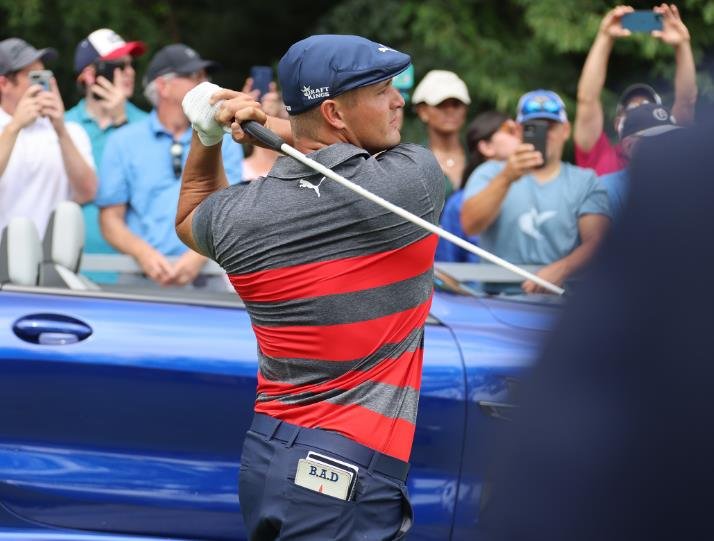Bryson DeChambeau, one of the most prominent figures in LIV Golf, has expressed his frustration and disappointment over missing out on the 2024 Paris Olympics. Despite his stellar performance in recent major tournaments, DeChambeau’s association with LIV Golf has hindered his chances of qualifying for the Olympics due to the lack of Official World Golf Ranking (OWGR) points awarded for LIV events. This situation has sparked calls for significant changes in the way golf rankings and qualifications are handled, particularly from within the LIV Golf community.
Bryson DeChambeau has had an impressive year, winning the U.S. Open and finishing strong in other major tournaments. His performance has solidified his status as one of the top golfers globally. However, despite these achievements, DeChambeau will not be representing the United States at the Paris Olympics. The primary reason for this is the OWGR’s refusal to award points for LIV Golf events, which has left DeChambeau unable to accumulate enough points to qualify.

DeChambeau’s disappointment is palpable. He has openly expressed his frustration, stating that he had hoped his recent victories would secure him a spot on the Olympic team. The exclusion has not only affected DeChambeau but has also raised questions about the fairness and inclusivity of the current ranking system. Many believe that the system needs to be re-evaluated to accommodate the evolving landscape of professional golf.
The situation has also highlighted the broader issue of how different golf tours are recognized and valued. DeChambeau’s case is a prime example of how the current system can disadvantage players who choose to compete in alternative tours like LIV Golf. This has led to growing calls for reform within the golfing community.
Calls for Change Within the Golfing Community
The controversy surrounding DeChambeau’s Olympic snub has ignited a debate within the golfing community. Many players and fans are calling for changes to the OWGR system to ensure that all professional golfers have a fair chance of qualifying for major events, regardless of the tour they compete in. The current system, which does not recognize LIV Golf events, is seen by many as outdated and unfair.
Several prominent figures in the golfing world have voiced their support for DeChambeau and called for a more inclusive ranking system. They argue that the OWGR should adapt to the changing dynamics of professional golf and recognize the achievements of players in all major tours. This would not only benefit players like DeChambeau but also enhance the overall competitiveness and appeal of the sport.
The push for change is gaining momentum, with discussions taking place at various levels within the golfing community. There is a growing consensus that the current system needs to be reformed to reflect the realities of modern professional golf. Whether these calls for change will lead to concrete action remains to be seen, but the debate has certainly brought the issue to the forefront.
The Future of Golf Rankings and Qualifications
As the debate over golf rankings and qualifications continues, the future of the sport hangs in the balance. The controversy surrounding DeChambeau’s Olympic snub has underscored the need for a more equitable and inclusive system. The current situation has exposed the limitations of the OWGR and highlighted the need for reform to ensure that all players are given a fair chance to compete at the highest level.
The golfing community is now faced with the challenge of finding a solution that balances the interests of all stakeholders. This includes recognizing the achievements of players in alternative tours like LIV Golf while maintaining the integrity and competitiveness of the sport. The outcome of this debate will have significant implications for the future of professional golf and the way players are ranked and qualified for major events.
In the meantime, DeChambeau and other LIV Golf players will continue to push for change and advocate for a more inclusive system. Their efforts have already sparked a broader conversation about the future of golf and the need for a more equitable approach to rankings and qualifications. As the sport continues to evolve, it is clear that the current system will need to adapt to keep pace with these changes.








